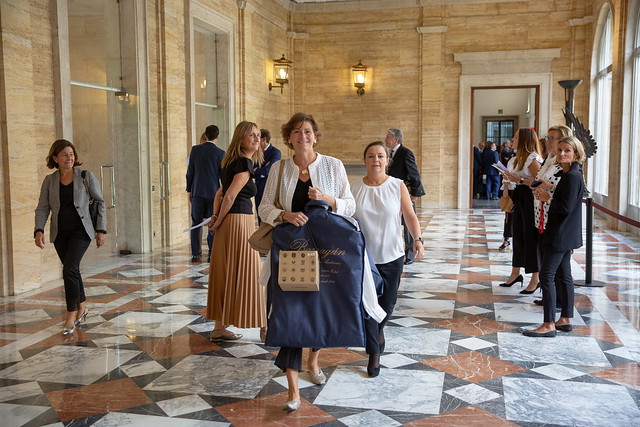In the picture
In the presidency, together with the president, were the vice-rectors Gonzalo Robles, Secundino Fernández, Pablo Sánchez-Ostiz, Paloma Grau, Rosalía Baena, and the Administrator, Igor Errasti.
"Researching more, with more ambition, with more depth, is undoubtedly one of the challenges facing the University of Navarra in the coming years". This was emphasized by president, María Iraburu, during the official opening of the 2022-23 academic year, in which the academic center celebrates its 70th anniversary. It is an "exciting and shared"challenge , as she pointed out, which will require the joint effort of all those who work at the University "and of so many public and private institutions to make the research work sustainable, also economically".
In this sense, he referred to project Bioma and thanked all the institutions and companies that are supporting its launch. He also recalled "the good news" received this week about the inclusion in the general state budget of an item of 2 million euros for the Science Museum that is part of the project. "These are very welcome funds. And so will be all those that may come to us," he said.
This project, with its "dual research and exhibition dimension", is emerging as "a unique contribution that, with the partnership of all, wants to offer the rigor and reliability of science to open new horizons of sustainable development ". It will also become a space for interdisciplinary reflection "in which to explore issues related to sustainability, to give them depth of content, to discover their anthropological roots and their ethical consequences".
Bioma is part of the Strategy 2025 "University and Sustainability". Professor Iraburu recalled that this roadmap of the University of Navarra for the coming years "aspires to a research open to the needs of society and institutions, involved in that great collective challenge which is to seek ways for a deeply human development , able to make innovative proposals and to face the consequences of a pandemic or the destabilization caused by a war on the international scene".
In particular, he spoke of the training of young researchers that has always characterized the University and of "the need to increase the presence of students from doctorate".







